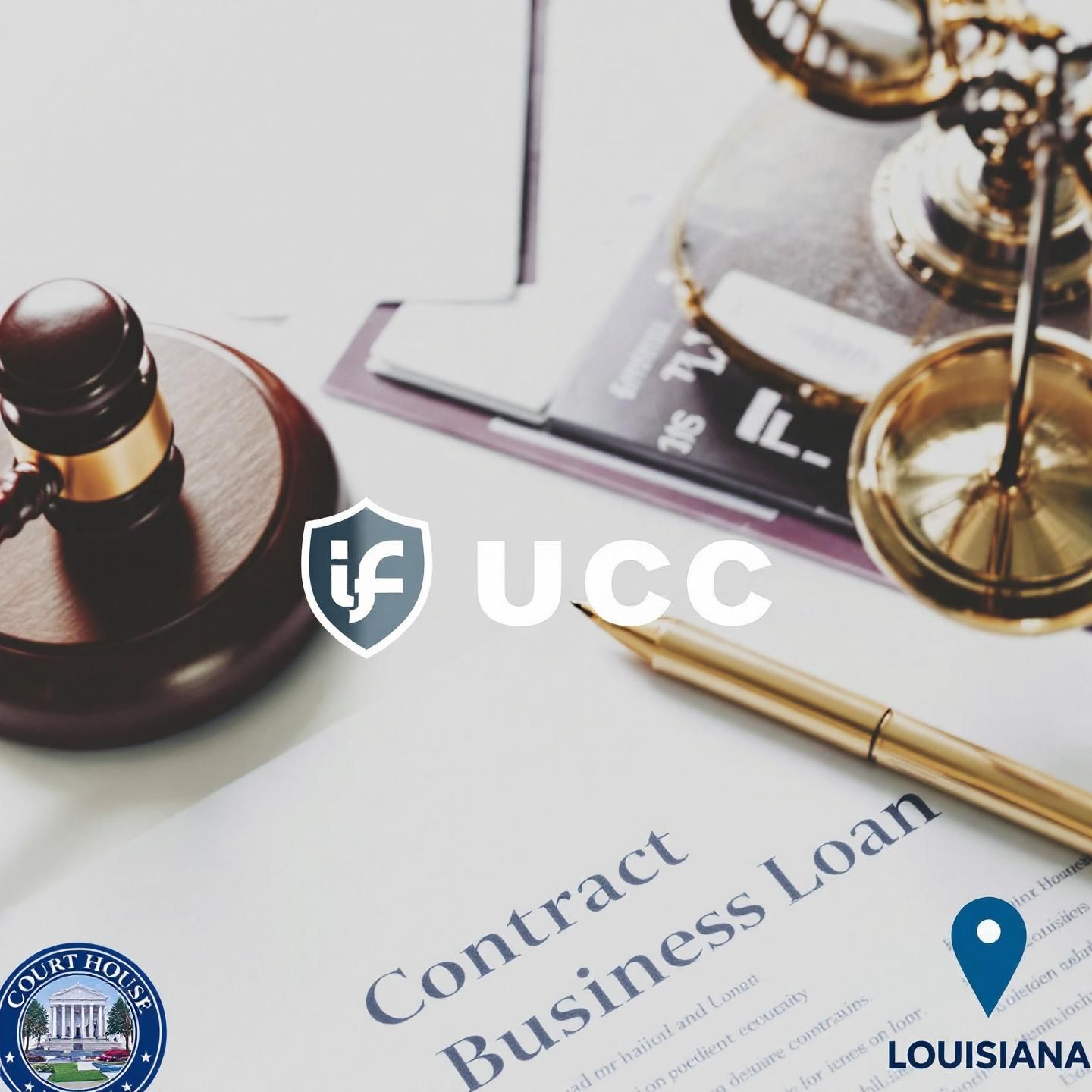What Is a UCC Filing and Does My Business Need One?

Why would someone file a UCC lien against my business?
If you’re running a business in Louisiana, you might have heard about “UCC filings” or a “UCC lien” and wondered — is that something I should worry about? Or maybe you’re wondering if you need to file one.
UCC (Uniform Commercial Code) filings play a major role when your business takes on loans, extends credit, or uses assets like equipment as collateral. A UCC-1 financing statement establishes priority in case of default, which can protect your interests or, if someone files one against you, affect your ability to get loans or sell assets.
This guide explains what UCC filings are, when businesses in Jefferson Parish, St. Charles Parish, or St. Tammany Parish might need one, and how Bloom Legal Network can connect you with knowledgeable Louisiana business attorneys to help you navigate UCC matters with confidence.
What is a UCC Filing and Why is it Necessary?
UCC filing — formally known as a UCC-1 financing statement — is a public notice filed with the Secretary of State to secure a creditor’s interest in certain property or collateral. In simpler terms, it lets others know someone has a legal right to the property if a debt isn’t repaid.
Louisiana uses a UCC system like other states. When a business borrows money — say, to buy equipment or expand in Metairie — the lender may file a UCC to protect their ability to seize collateral in case of nonpayment.
Why Might Someone File a UCC Lien Against Your Business?
If someone has filed a UCC against your business, it typically means one of two things:
- You’re a debtor. You used property or assets as collateral for a loan or lease. When the lender files, it secures their claim on that property.
- It’s a vendor or creditor. If you’re late on payments, they may file a UCC lien to protect themselves. That filing can affect your credit and make it harder to sell or refinance assets.
In Louisiana, this matters in any parish — whether you’re leasing equipment in St. Charles Parish, expanding your retail business in New Orleans, or setting up a manufacturing operation in St. Tammany Parish. A UCC filing can give someone legal precedence if you file for bankruptcy or face creditor claims.
When to Consider Filing a UCC-1
If your business is the one extending credit or lending money, filing a UCC-1 is an important protective measure. You should consider filing one if your business:
- Issues a secured loan using business equipment, inventory, or receivables as collateral.
- Leases equipment or other property to a client.
- Extends credit to customers and wants to protect against nonpayment.
Filing a UCC ensures that your business has priority over any future creditors. Failing to file can mean you lose your claim to the collateral if the debtor defaults, potentially losing thousands of dollars in assets or inventory. A local business attorney can ensure the filing is done correctly and in the appropriate jurisdictions, such as Orleans Parish or Jefferson Parish.
What Happens if You Don’t File a UCC?
Failing to file a UCC can lead to serious problems:
- You lose priority. If another creditor files first, they could claim your collateral if things go wrong.
- Your assets are exposed. You could lose key equipment or inventory that you thought belonged to your business.
- Transaction complications. Selling or leasing the asset later becomes more complex when there’s a competing claim.
If you’re setting up a new loan or leasing equipment, a business attorney can help ensure a UCC is filed properly and in the right jurisdictions.
What About Terminating or Releasing UCC Filings?
When your debt is fully paid, it’s crucial to file a UCC-3 termination statement to clear the record. Otherwise, the filing stays in place and raises red flags for banks, partners, or vendors.
Not clearing a UCC lien in Louisiana — especially in Metro areas like New Orleans or Kenner — could hurt your ability to secure future credit or sell property down the line.
The Role of a Business Attorney
Navigating UCC filings can be complex. Bloom Legal Network can connect you with experienced business attorneys who can help you:
- File correctly: Ensure that UCC-1 and UCC-3 forms are completed and filed accurately with the Louisiana Secretary of State.
- Resolve disputes: Challenge unjustified UCC liens filed against your business.
- Strategize: Advise on how UCC filings fit into your overall business, loan, and collateral strategies.
📞 Want help with UCC filings or dealing with liens in Louisiana? Call 504‑599‑9997 or email info@bloomlegal.com to be connected with a local business attorney who gets UCC law — and gets results.
Frequently Asked Questions
Yes. Until a UCC-3 termination statement is filed, the lien remains on record, which can cause other lenders to think you still owe money.
No. In Louisiana, all UCC filings are processed centrally through the Louisiana Secretary of State’s office, not on a parish-by-parish basis. Filing multiple times or in the wrong location can lead to unnecessary complications. A Bloom Legal Network attorney will file accurately to avoid these issues.
If you believe the lien is unjustified, a Louisiana attorney can help you negotiate with the creditor, correct the filing, or challenge it in court if necessary to protect your business’s reputation and assets.






